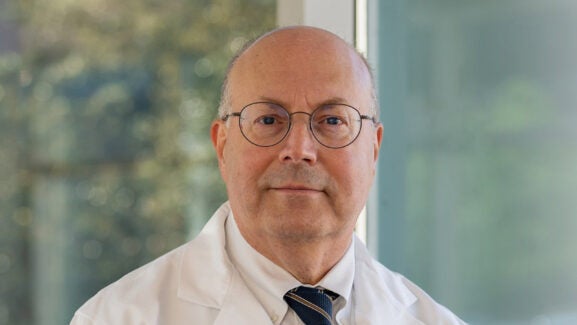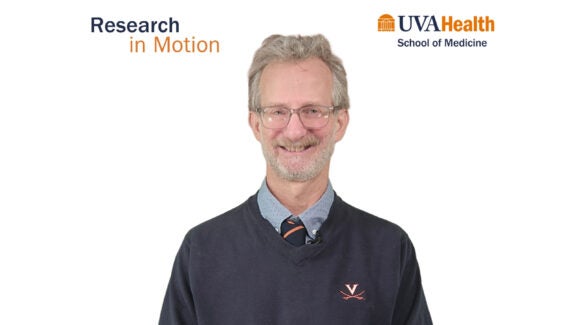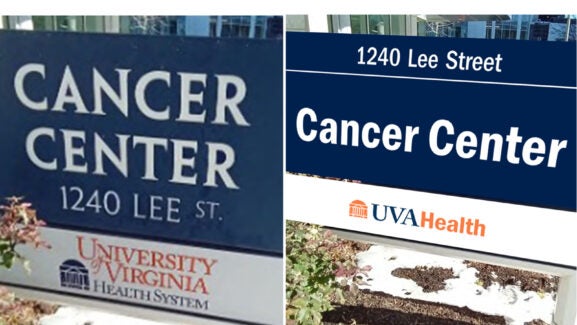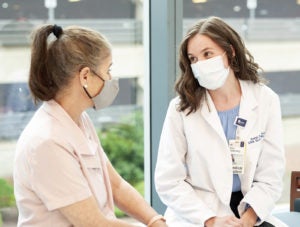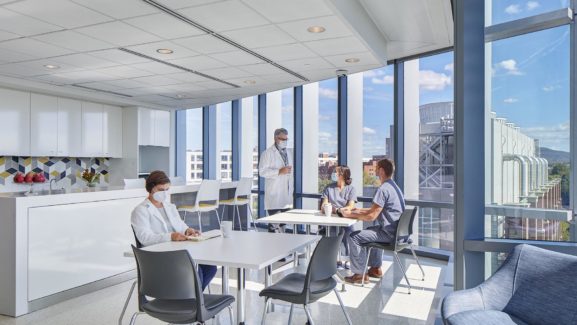
Patient Student Partnership Evolves as It Enters Its Fourth Year
The Patient Student Partnership (PSP) program is about to reach an important milestone: our current fourth-year students, the Class of 2022, will be the first to be active in the program for all four years of their medical education. PSP pairs medical students with patients with chronic illnesses who receive ongoing care at UVA Health.
PSP matches begin when students are in their first year and continue through all four years of medical school. The longevity of these relationships allows students to observe the trajectory of chronic illness, learn relational skills by building and maintaining their first doctor-patient relationship, and act as advocates while learning how healthcare is received from the patients’ point of view.
The program’s recent developments include:
Peer Mentoring | Over the next academic year, SMD22 will complete their participation in PSP and serve as the program’s first peer-to-peer mentors. In addition to guiding first-year medical students, they will be learning about handoff communication for longitudinal chronic illness patient care.
Communication & Care During the COVID Era | When the pandemic arrived, using a computer or phone to meet with a doctor via teleconferencing software quickly became accepted. This normalization allowed our students to more easily check in with their patients. Students now call patients before appointments to prompt questions the patient (or their family member) may have, so they are better prepared for the physician visit. The expanded options for virtual communication during the pandemic strengthened the student doctor-patient relationship and made it easier to interact with their patients outside of visits. This connection has translated into students feeling that they have an authentic role in their patient’s care. During the pandemic, students:
- spotlighted how chronically ill patients were most at risk for being socially isolated during the pandemic and organized volunteer student efforts to provide virtual social support to isolated patients.
- took an active role in disseminating UVA Health information on COIVD-19 vaccines to patients. Many students helped patients get vaccine appointments with their local health departments and navigated the web-based sign-up systems that many of our patients had difficulty accessing.
- joined patients and their physicians for virtual medical visits which gave students a front-row seat at the rapid deployment of telemedicine for patient care in 2020.
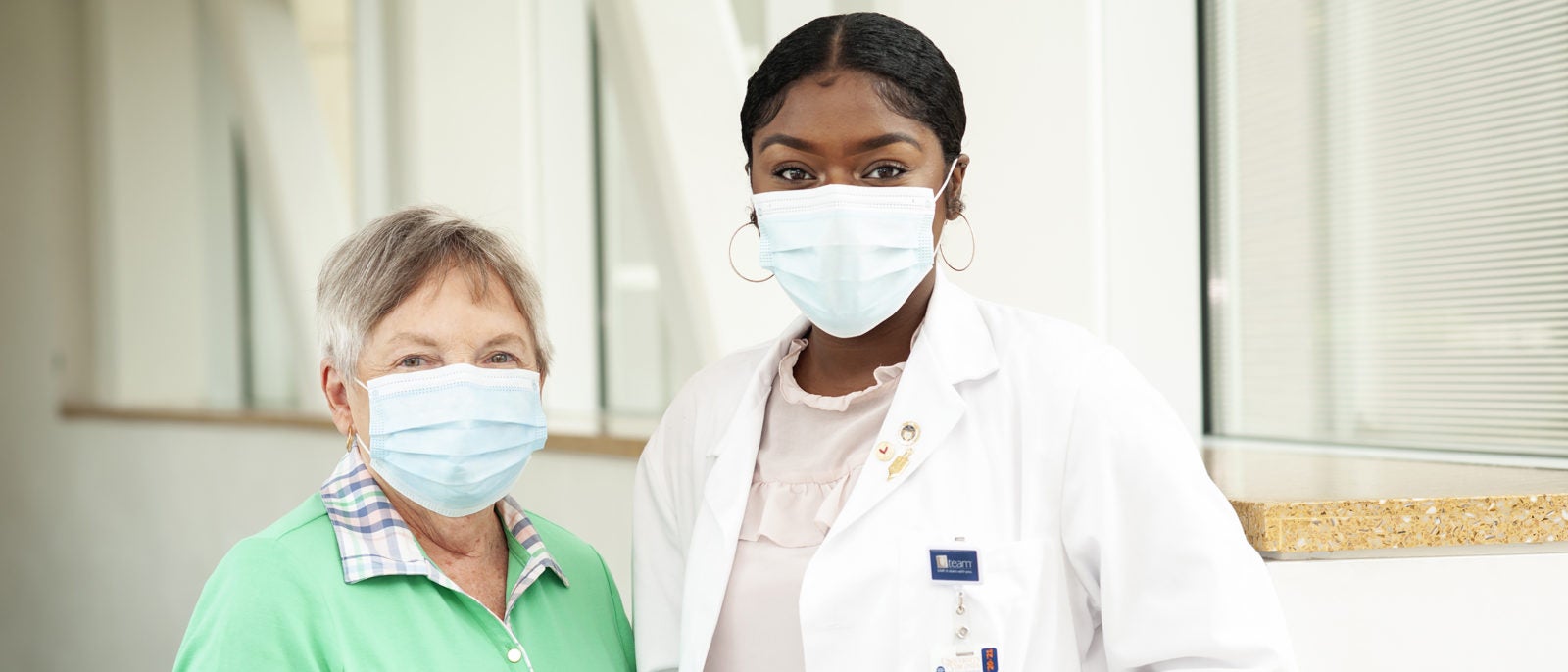
PSP student Aaliyah Meade (right) with her patient
Utilizing Interprofessional Education | PSP is teaching the importance of working on an interprofessional team and highlights experiences that students are not typically exposed to during medical school. Examples include:
- Pharmacists Share Medication Expertise | This program offers a workshop with clinical pharmacists to educate PSP students about medicine reconciliation. This includes comparing EMR medication lists with what the patient actually takes at home, learning how to take each medicine safely, managing side effects, and understanding the ramifications of medication interactions. Pharmacists share skills for asking non-judgmental questions about medication adherence to promote patient participation and safety. Following the workshop, PSP students meet with their patient to go over their medications and apply these new skills.
- Chronic Disease-Specific Dietary Recommendations | During their gastrointestinal system course, our medical students learn from UVA Health dietitians about the importance of diet in treating a variety of medical conditions and how to take a dietary history. One of their PSP project options is to perform a diet recall with their patient and research the chronic condition specific diet then individualize the recommendations for their patient’s unique situation. Our PSP students then work with UVA Health dietitians to review their patient’s dietary recommendations. This is not merely academic work for the student, as they produce a report for the patient’s doctor to assist with care.
PACLAC Clerkship Integration | Students work on a PSP project with their patient during their clerkship year. For the first time this year, the PSP project is integrated into the Preventive, Acute, Chronic and Longitudinal Ambulatory Care (PACLAC) clerkship. Students apply a topic about which they are learning to their individual patient’s long-term care. Topics that best apply to their patient — such as preventing complications, preventative care recommendations, transition of care from the hospital to home, or chronic pain management — are chosen and the student works with PACLAC faculty to create an in-depth presentation.
Special Groups for Matched Pairings | Our PSP team has engaged special patient populations to be a part of the program. Students who are passionate about with working with the underserved homeless, children with developmental concerns, the homebound, Spanish-speaking, or other specific groups opt-in to being paired with a patient from that population. The program gauges student interest during orientation and finds a match based on their interests and goals. This new matching system has enhanced both the physician-advocate and relationship-building roles that PSP is designed to promote.
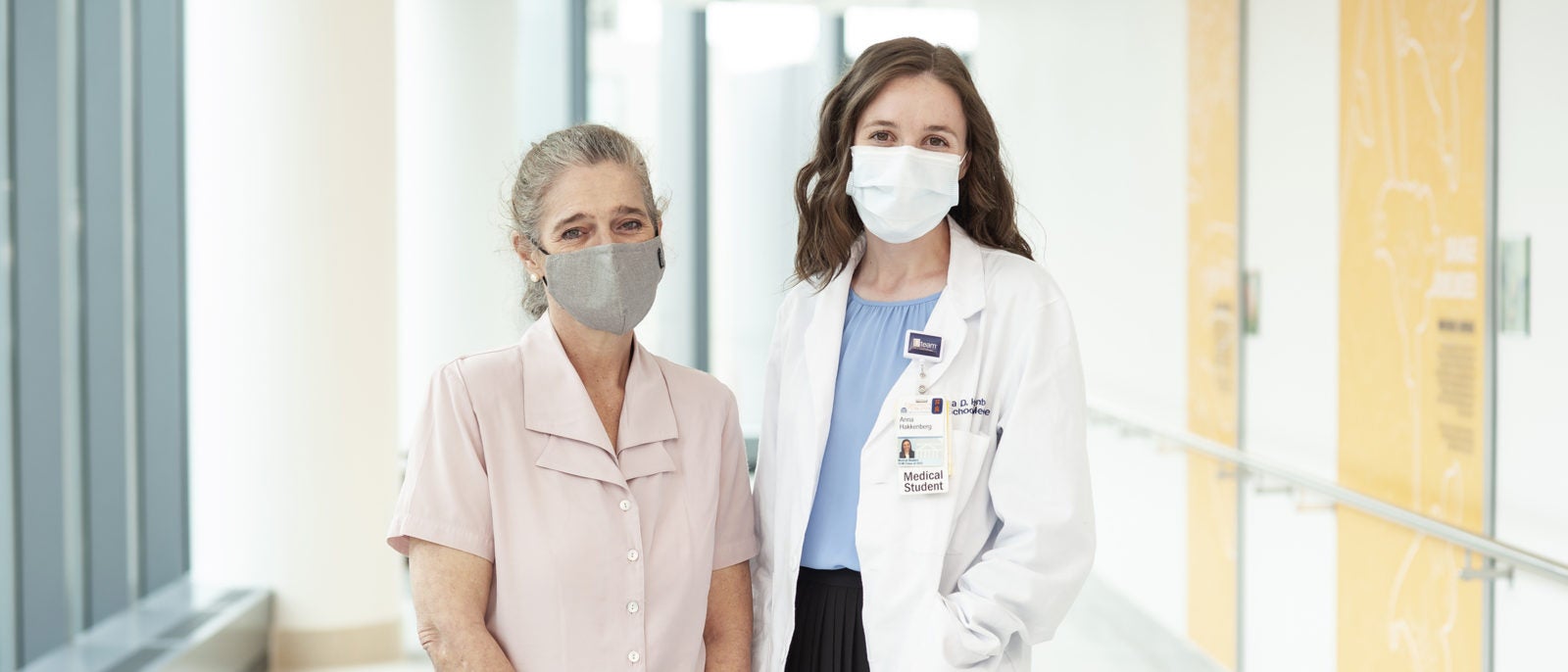
PSP student Anna Hakkenberg (right) with her patient
A Good Indicator of Success
While numbers do not tell the whole story, they can be a good measure of success. This fall, approximately 529 patients will be involved in the PSP program. Of the current PSP patients we recently contacted to see if they would like to take on a new student in the fall, 74% have expressed interest in continuing with the program. That’s incredible! (And we’re still making phone calls, so that number may go higher.)
Some patients who joined the program when PSP was a pilot called The Phronesis Project will be paired with their third medical student this year! That level of commitment to the program is a testament to PSP’s foundations, its mission, and its value as both a service and an educational tool.
With the first full class who participated in the PSP program graduating next spring, we will be holding a gratitude celebration in March 2022 as a thank-you to the patients for being such wonderful teachers. We plan for this to become an annual tradition for graduating students. Stay tuned for more information on this as the date gets closer.
Gratitude to UVA Health Faculty and Staff
Students report that our faculty and staff have been exceptional at welcoming and teaching them, especially during the pandemic. These encounters benefit our patients, too. We have heard anecdotes from patients who share how much they learned at their appointment because a medicine, procedure, or rationale was carefully explained to the student.
Thank you to all who work in our clinics and have welcomed our students as part of the healthcare team. You are playing a vital role in the education of these soon-to-be physicians as they advocate for their patients in the PSP program. Our current and future patients will be better cared for — because of you.
To learn more about the Patient Student Partnership, visit the website. If you have questions, email Beth Wilson, Patient Student Partnership Coordinator, at patientstudentpartnership@virginia.edu.
Meg Keeley, MD
Interim Senior Associate Dean for Education
Harrison Distinguished Professor of Medical Education
Latest News

